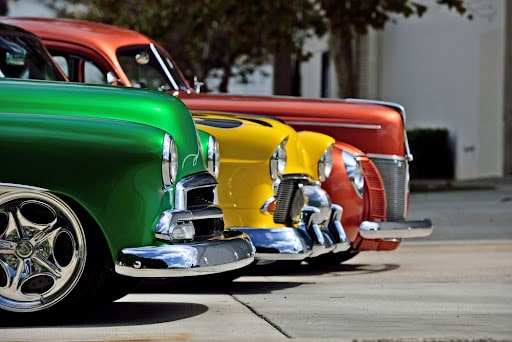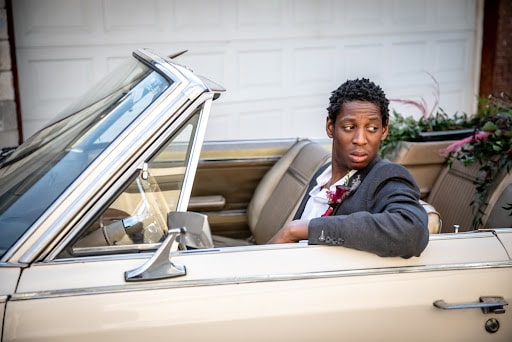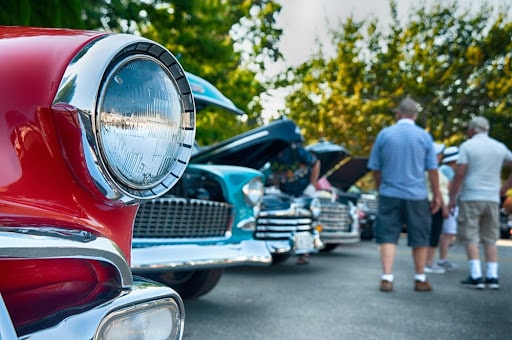
Classic car insurance, or collector car insurance, is a special type of policy that helps protect antique or classic cars.
Classic car insurance requirements can vary, so we’re covering how classic car insurance differs from personal auto insurance and how to determine if it’s right for you.
What Is Considered A Classic Car?
There’s no singular definition for what makes a car a classic. In fact, the list of “classic cars” is pretty extensive depending on who you ask.
The Classic Car Club of America (CCCA) defines a classic car as a vehicle manufactured from 1915 to 1948. However, many people use the term “classic car” to refer to vintage, antique, and collector cars manufactured well outside that time frame.
A more inclusive definition of classic car types refers to any of the following:
- Antique and vintage vehicles
- Classic military and military vehicles
- Classic tractors and trucks
- Custom, exotic, and luxury vehicles
- Kit cars and replicas
- Modified vehicles (hotrods, tuners, lowriders, and resto-mods)
- Motorcycles and scooters
- Muscles cars, sports cars, and race cars
- Restorations in progress
- Retired commercial vehicles (fire trucks, milk trucks, hearses)
- Newer collector vehicles

Classic cars are generally defined as cars that maintain their value or appreciate in value, and they are used primarily for pleasure rather than for everyday use.
What Are Classic Car Insurance Requirements?
Now that we’ve defined what makes a car classic, let’s talk about classic car insurance requirements. It’s important to note that a car’s age alone is not enough to qualify for specialized classic car insurance. There are 4 additional criteria most insurers look for.
1. Limited Use
Your classic car cannot be used for everyday commuting and errands. In some cases, you may also be required to prove you own a primary car for everyday use.
2. Travel To Car Shows
Travel to car shows and meetings is allowed under the limited-use provision of certain classic car insurance policies, but not all. Insurers may provide specialized coverage to car shows and meetings if that travel isn’t included in your policy.
You should check with your insurer to see if there are travel restrictions if you plan to take regular, multi-day, or high-mileage drives in your classic vehicle.
3. Storage
When not in use, classic car insurance policies usually require you to store your vehicle in a locked, enclosed, private structure like a residential garage or storage unit.
Carports, driveways, and other storage areas may be accepted depending on the insurer.

4. Driving Record
Serious offenses on your driving record in the past 3 years can disqualify you from a classic car insurance policy. Serious infractions include reckless driving, repeat speeding violations, or driving while intoxicated.
It’s important to note that not all “special” vehicles meet classic car insurance requirements. Some insurers don’t cover vintage off-road vehicles, for instance. Vehicles in poor condition or vehicles that have been previously damaged may also be denied coverage.
The following types of vehicles are usually not covered by classic car insurance:
- Daily use vehicles
- Off-road and recreational vehicles
- Commercial vehicles in current use
Different states also have different criteria for what constitutes a classic vehicle, including but not limited to age, weight, usage, or manufacturing.
Some insurers will consider a car classic if it’s only 10 years old but of special interest. Some may not. Remember you can also insure more than just classic cars. You can insure motorcycles, vintage tractors, military vehicles, and more depending on your insurer’s policies.
Classic Car Insurance vs. Regular Car Insurance
Classic, collectible, or antique cars aren’t like ordinary cars in that regular auto insurance is not sufficient to protect these vehicles against damage or loss.
Classic car insurance policies usually cover physical damage to your classic car (comprehensive and collision coverage), damages/injuries you cause to others (liability coverage), roadside assistance, and other optional coverages for things like spare part replacement.
Additional coverage that insurers account for in classic vehicles usually falls into 3 categories:
1. Value And Appreciation
Classic car insurance typically covers you up to an agreed-upon value between you and your insurer. Regular auto insurance typically doesn’t offer as much coverage.
Unlike everyday vehicles that depreciate in value over time, your classic car may retain its value or even gain value over time. Your insurer will help you determine the value of your classic car, and you’ll likely have to adjust your coverage if the value of your car appreciates.

2. Specialized Repair And Restoration
Restoring vintage or classic vehicles is typically more expensive than repairs at a traditional auto body repair shop. Your policy should offer you flexibility in covering these more expensive repairs, even if the cost is two to three times as much.
3. Special Towing And Spare Parts
Transporting a classic car tends to be more expensive, so the towing services offered to you by your insurer should reflect that. Finding spare parts for classic vehicles also tends to be more difficult and more expensive, so spare parts coverage should be aligned with those higher costs as well.